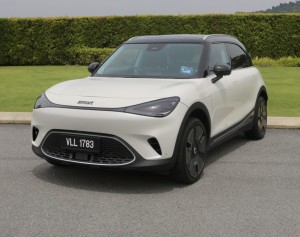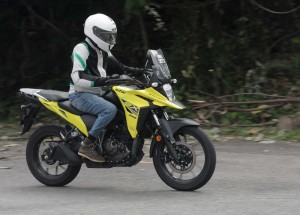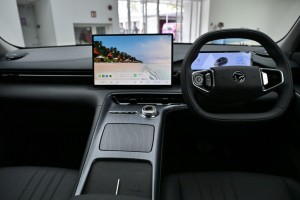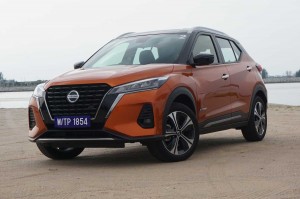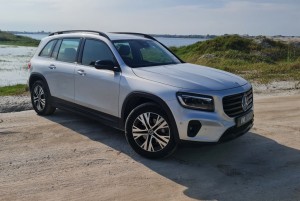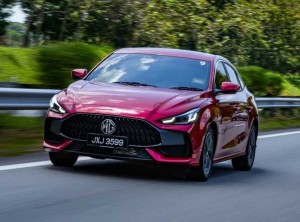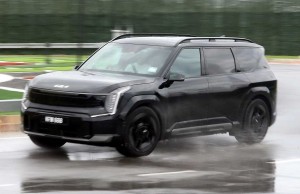PETALING JAYA: Plus Xnergy Holding Sdn Bhd, a provider of clean-energy solutions, is taking a significant step by venturing into the electric vehicle (EV) sector.
The company, which started off as a solar-system installer more than a decade ago, is fast establishing its presence in the EV market, as it has clinched various projects related to EV charging infrastructure.
Co-founder, group chief executive officer and executive director Ko Chuan Zhen tells StarBizWeek that, in an effort to help speed up electrification, the company’s present focus is on building EV charging infrastructure with partners such as chargeEV and Tesla.
Some of the EV charging stations it has already installed are located in IOI City Mall Putrajaya, UWC Bhd in Penang, Berjaya Time Square in Kuala Lumpur, Starbucks in Seremban 2, Starbucks in Port Dickson DT and Starbucks Ampang in Negri Sembilan.
The company is seeking more tie-ups to expand its network of charging stations, recognising the strong and growing market for EVs in the country.
Delving into the EV market, Ko says Malaysia is experiencing a surge in EV adoption as the government implements policies to promote sustainable transportation.
At the same time, the company is aware that inadequate charging points hinder adoption, hence it is keen to play a role to help alleviate the problem.

Ko.
“When speaking to friends or customers, we hear that many have fears about the limited number of charging points to make the switch to EVs smoother.
“Witnessing the growing shift away from internal combustion engine vehicles to EVs on a global level, we entered this segment in 2021.
“And that brings us to our own efforts to encourage the adoption of cleaner transportation options in our communities and empower their shift to EVs,” Ko adds.
He says there were a number of factors that drove Plus Xnergy’s ambition to enter the EV segment. This year, the EV market in the country is projected to reach RM805.5mil, and is expected to exhibit an annual growth rate of 4.98%, resulting in a projected market volume of RM978.5mil by 2028.
Furthermore, the government has set an ambitious goal of transitioning 15% of all vehicles on Malaysian roads to EVs by 2030, just four years away, and 80% by 2050.
Ko believes these are not lofty goals but targets that are achievable with with strategic support.
“Aside from government initiatives such as the Low Carbon Mobility Blueprint and the National Energy Transition Roadmap (NETR), initiatives such as luring EV makers such as Tesla to set up production in the country is quite impressive and progressive.
“We believe this will drive fierce competition along with entries from China and will continue to drive prices down.”
Ko says another boost for the EV segment is the announcement by the Investment, Trade and Industry Ministry that the country’s first affordable EV model, potentially priced under RM100,000, will enter mass production by the end of next year.
On top of that, he says Malaysia’s strong electrical and electronics manufacturing industry makes it an ideal location for automakers and investors to diversify their supply chains and expand their production of next-generation vehicles.
The Malaysian Automotive Association reported that EV sales in Malaysia skyrocketed by 286% in 2023, with a total of 10,159 units delivered last year compared with 2,631 in 2022.
Ko says that as a provider of clean-energy solutions, the company will continue to enhance its residential solar systems, solar farms and the commercial and industrial (C&I) segment.
“Another area of focus is our support of the government’s NETR. In recent years, more and more multinational corporations have come into our list with their commitment to using more renewable energy.
In serving them, our mission is to ride the NETR’s focus areas. which include Corporate Green Power Programme, and Third Party Access, among others.
“We aim to provide a more holistic solutions, from rooftop solar systems to solar farms for business owners and corporations to enable them to earn RE carbon credits and lower their energy bill.
“Technology wise, we will place more effort and focus on battery energy storage systems (BESS), which expands our experience to implement BESS at the microgrid level up to residential houses, factories and utility scale.
“BESS is a priority as it enhances the national grid’s security and stability. When we rely more and more on RE, battery storage is essential to stabilise the power supply at the national grid level,” Ko explains.
This year, Ko says the company experienced over 60% growth for its C&I projects in terms of power capacity and building volume.
Additionally, the company has successfully commissioned a BESS microgrid project in Indonesia, he notes.

